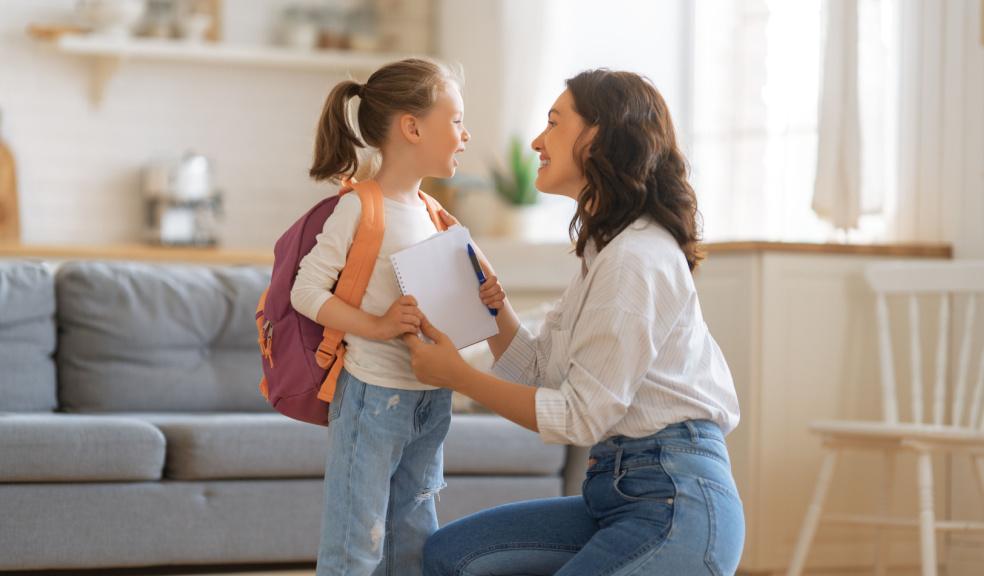
Embark on an Eco-Adventure: Simple Ways to Embrace Sustainability Before Schools Start Again
Wow, it’s almost time to send our kids back to school. Whether that disappoints you or makes you breathe a sigh of relief (hey, we’re not judging either way), you should begin prepping for their return sooner rather than later. Especially when it comes to environmental impact.
As we continue to develop our understanding and commitment to the environment, taking a closer look at our lifestyles and the decisions we make, we can factor these concepts into our back to school preparations.
Contrary to popular belief, adopting a more sustainable lifestyle doesn’t have to mean dedicating heaps of money and time. Once school starts again, the mornings and evenings will undoubtedly return to chaos, but that doesn’t mean you have to sacrifice your commitment to helping the earth.
Feeling a tad overwhelmed? Don’t be. We’ve put together a few tips and tricks to help you, your children, and the environment all at once.
Prevent food waste
Let’s leave wasting leftovers in the previous school year.
Did you know that, in the UK, 20 million slices of bread are wasted each day? That equates to more greenhouse gas emissions than that of 140,000 cars each year.
One of the best practices that we can all get better at is making use of leftovers. For example, you could freeze leftover bread before the slices turn funny, ensuring they don’t go to waste.
Similarly, adopt the same approach for blanched vegetables, fruit, soups, sauces, and prepared meals. If you don’t plan to consume the meals the next day for lunch, pop them in the freezer and they should retain their quality for up to six months.
Freezing isn’t your only option when it comes to rescuing leftovers. For instance, if you notice some salad and veggies wilting away in your fridge, you could save them by making a delicious pasta salad.
It’s a quick, easy and delicious solution that prevents food waste. Plus, you can be creative with the ingredients! From olives and feta, red pepper and chicken, to spinach and cucumber – the possibilities are virtually endless.
Bulk buying for ease
As the back to school season continues to creep up on us, we need to think about refilling our cupboards once more.
Stocking up on school snacks in bulk means less packaging is needed, so your kids won’t be producing excessive waste at school. Plus, the products always often work out slightly cheaper, which can never be a bad thing.
Like most sustainable alternatives, using refill solutions is not only better for our earth, but also better for your bank balance!
In some ASDA stores, there’s a refill station where customers can take their own containers to fill up, which is a cost-effective way to bulk buy whilst shopping sustainability.
Bulk buying is also far easier and reduces stress throughout the year when you have the pressure of ensuring there are always snacks and beverages in for the school lunches.
One thing that is perfectly suited to being bulk bought is soft drinks, so that you can make sure you always have a refreshing drink in for lunchtimes. Bulk buy soft drinks and never again will you have to make a mad dash to the supermarket at silly o’clock!
Of course, it should go without saying that the soft drinks you buy should also play a part in reducing the impact of global warming. A drink that contains one of your five a day is great, but a drink that ticks that box and comes in a recyclable aluminium can is even better.
Packed lunch inspiration
Now that you have plenty of eco-friendly lunch options, the next step is to consider how to get them to school.
Spoiler alert: Single-use plastic is not the way forward!
Not only is single-use plastic harmful to the environment, but it can also degrade into microplastics, which can eventually make its way into our diets. No, thank you!
The best way to avoid this is to opt for reusable containers instead, which are widely available in different colours, shapes, and sizes.
If you’re looking for an even more cost-effective solution, why not reuse the containers that your takeaway food comes in? And if you want an alternative to clingfilm or tin foil, you can try beeswax wraps – they are breathable, washable, and biodegradable too!
Get the kids involved
Our children are the people who will suffer the most from the impact of climate change, which is why we should get them involved in our eco-friendly practices.
We should actively encourage young people to develop sustainable habits by teaching them the importance of proper recycling from a young age. To do this, they must be taught to look out for the relevant logos on product packaging, so they know what to put in general waste and what goes into the recycling.
As almost 10 billion aluminium cans are produced in the UK each year, with 3 billion not recycled correctly, they frequently end up as litter.
For younger children who may not have the understanding to act independently yet, a rewards system could be implemented – such as a chart with earth, animal, and tree themed stickers, which they would earn every time they demonstrate eco-friendly behaviour.
Preventing clothes waste
Clothing waste is another crucial factor of sustainability, with 85% of all textiles not being recycled annually. Instead of buying new, parents could utilise ‘hand me downs’ within their family and friend group.
Alternatively, there are second-hand clothing sites such as Vinted that offer cost-effective school clothes for children. Some schools now have a second-hand uniform system, which enables pupils to return uniforms in a suitable condition to be redistributed for the following academic year.
Not only is this great news for the environment, but it also provies economic support to other parents going through financial difficulty or struggling with the cost-of-living crisis.
Sustainable stationery
When purchasing stationery, there’s a growing number of eco-conscious options available. Hurrah!
Notebooks, pens, and pencils can all be found made with recycled materials, and often minimal packaging. Aim to look for FSC certified stationery, which is made from 100% recycled materials, or items printed with vegetable ink as a greener alternative to traditional petroleum-based counterparts.
Back to school, but do it sustainably
Starting the 2023-2024 academic year with an attempt to have a sustainable influence on your children’s education is even more beneficial than you may think.
You’ll be instilling eco-friendly habits and values into the next generation who will soon have the responsibility to help the planet’s recovery. We hope this gives you lots of food for thought for the start of the new academic year. Good luck!














